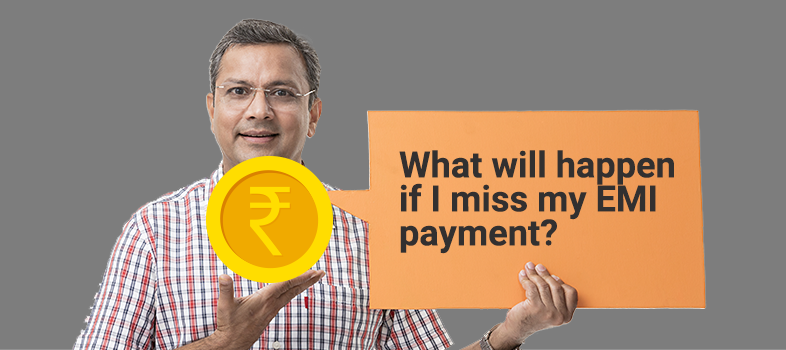Over the past few years, the number of individuals choosing personal loans to finance their big purchases, travel, and consolidate debts has been increasing rapidly. As is already known, personal loans are unsecured loans that require minimal documentation and are disbursed fairly quickly. Furthermore, personal loans come with a flexible repayment schedule that ranges between 1 year and 5 years. Banks and other lending agencies provide their customers with the option of choosing the loan tenure that would be most convenient for them.
Despite choosing repayment tenure and EMI options that a borrower would be most comfortable with, there are certain instances where the borrower might have trouble repaying the EMI for a particular month. While missing 1 or 2 EMI payments may not seem like a big deal, it does have a few negative impacts.
Classification of Loan Defaults
Most banks and financial institutions classify loan payment defaults into 2 categories:
Major defaults
Major payment defaults are those where the borrower has not made a payment in more than 90 days. Most financial institutions steer clear of individuals who have major payment defaults in their credit report. When an individual has payments pending for more than 90 days, the loan account is marked under the Non-Performing Assets (NPA) group.
Minor defaults
Minor payment defaults are those loan accounts where the non-payment is less than 90 days. Borrowers who have minor defaults against their loan account can recover from the negative impact that it has on their CIBIL score.
Consequences of Missing Personal Loan EMI Payments
CIBIL Score:
The most obvious consequence of defaulting on loan payments is a decrease in your credit score. Most lending agencies require borrowers to have a CIBIL score of 750 or more to be eligible to apply for a loan. Missing even 1 EMI payment can result in the borrower’s credit score dropping by 50 to 70 points.
Credit worthiness:
Apart from the credit rating, a borrower’s credit report also has comments about the individual’s repayment history. Very often even if the borrower’s CIBIL score is above 750, the comments about payment defaults in the credit report are often the reason for personal loan rejection. Most lenders view these comments in the credit report and mark such individuals as risky borrowers who will not be able to abide by the repayment terms of the loan.
Penalties:
A number of banks and financial institutions levy late fees as penalties for individuals who have missed their EMI payments. The amount that is charged varies but is usually around 1% -2% of the EMI that is due.
Recovery Agents:
As a last resort, banks and financial institutions may sometimes send agents to recover the loan amount when the default period has extended beyond 90 days. The bank initially issues a 60-day notice to the borrower before the loan account is tagged as an NPA. This is a situation that is best avoided since it can be quite stressful.
Methods to Avoid Loan Defaults
While loan defaults should be avoided at all costs, there are a few methods that can be employed when the situation does arise. In most cases, borrowers tend to have prior knowledge of whether or not they would be able to make the upcoming EMI payments. The following are options that the borrower can consider.
Plan Finances Better:
In order to preemptively prevent chances of defaulting on a loan, it is advisable that borrowers plan their finances more efficiently.
Request for a lower EMI:
If the borrower foresees the possibility of defaulting on a loan payment, they should approach the bank and inform them of their financial circumstances and request for a lower EMI. Banks usually lower EMIs by either extending the existing loan tenure or converting an unsecured loan to a secured loan. In cases where the loan is converted to a secured loan, the interest payable on the amount borrowed is also lower. Of the 2 options, converting an unsecured loan to a secured loan is ideal since the reduction in EMIs is significant when compared to extending loan tenures. Furthermore, very few banks permit extension of loan tenures.
Loan Part Payments:
Part payments are another good way to lower the EMI payments and the interest rate. However, this is another preemptive method of ensuring that the borrower is capable of making EMI payments for the entire loan tenure. When the borrower has surplus funds and an active personal loan, making a part payment can ease the financial burden.
Request for an EMI-free Period:
In cases where there is a break in the flow of income, the borrower can approach the bank and request for an EMI-free period. Banks often oblige to such requests made by customers when they lose their job or temporarily stop their business operations. The bank gives customers a 3 to 6-month waiver on EMI payments, following which the borrower must resume EMI payments.
While personal loans are an excellent means of financing big purchases, a borrower’s track record for repayment plays a significant role in determining his or her future loan eligibility.

